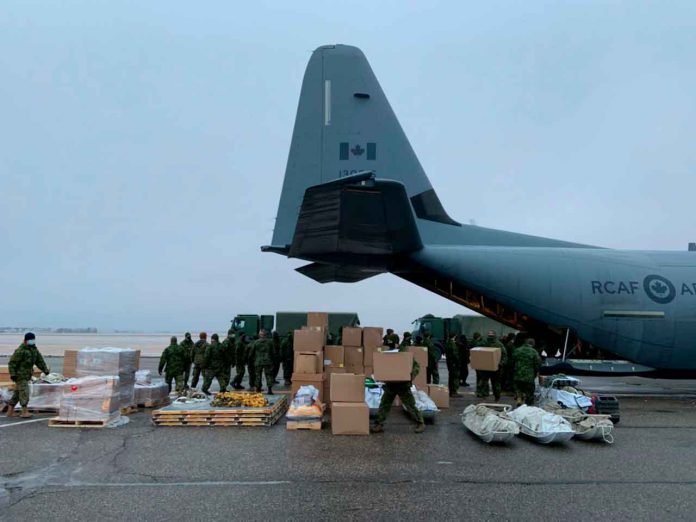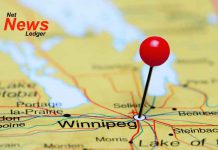
OTTAWA – COVID-19 – The Canadian military has been deployed in Manitoba to assist Red Sucker Lake First Nation and Shamattawa First Nation. There the military is assisting with the distribution of food and needed supplies.
In Northern Ontario, the Canadian Rangers have been called up as well.
The COVID-19 pandemic continues to surge in Indigenous communities according to the latest report from the Government of Canada.
The week of December 13-19 continued to see an alarming increase in the number of newly reported cases of COVID-19 in First Nations communities, related to the second wave of the pandemic, with 881 new cases reported accordingly as of December 22.
On First Nations reserves, as of December 22, Indigenous Services Canada (ISC) is aware of:
- 7615 confirmed positive COVID-19
- 3005 active cases
- 4541 recovered cases
- 69 deaths
ISC sats “There are a total of 31 confirmed positive cases in Nunavik, Quebec and all have recovered. As of December 22, the Government of Nunavut is reporting nine active cases and a total of 262 confirmed cases of COVID-19. There are 252 people that have recovered from the virus and of the four impacted communities, only Arviat still has active cases.”
ISC is working closely with Indigenous, provincial and territorial partners to ensure an integrated, coordinated and co-developed approach supporting access to a COVID-19 vaccine by Indigenous Peoples and communities. Today, Health Canada authorized the second COVID-19 vaccine in Canada, manufactured by Moderna. This authorization is a critical step in ensuring additional COVID-19 vaccines are available to all Canadians in all parts of the country. The storage and handling requirements of the Moderna COVID-19 vaccine mean that it can be distributed to isolated and remote communities, including the territories. Moderna is ready to provide up to 168,000 doses of their COVID-19 vaccine to Canada in December. This distribution will be primarily in the Northern territories, and for remote and isolated areas. Indigenous Services Canada, other federal departments, and Indigenous partners are working with provinces and territories to support the inclusion of First Nations, Inuit, and Métis in their vaccine planning and allocations, which is the process for routine vaccinations.
The Moderna vaccine is currently indicated for use in people 18 years of age or older. Moderna is currently conducting additional studies in children from 12 years of age and older, and this indication could be revised in the future to include children if the data from these studies support it. The Pfizer vaccine is currently approved for people 16 years of age and older. Its safety and effectiveness in youth under 16 years of age has not been established.
Although the arrival of a vaccine marks an important development, everyone must continue to keep themselves and their families safe, while protecting populations and communities at high risk for severe outcomes. As we enter the holiday period and colder months, everyone is urged to continue to limit close contact to only those in their immediate household and reduce in-person interactions to only essential errands and activities. Maintaining health practices is crucial: stay home/self-isolate if symptoms arise, maintain physical distancing, wear a face mask when interacting with people from outside the household (including indoors), and keep up with frequent hand, cough and surface hygiene.
The Government of Canada recognizes and thanks the frontline workers who put their own safety on the line every day to make sure families, youth, and especially Elders are kept safe. Their dedication and hard work has reduced the number of people who tested positive for the COVID-19 virus.
As COVID-19 cases continue to rise across the country, the risk of spread increases. We urge all community members to support their leadership and follow the community and provincial public health measures that have proven to save lives. Everyone can help limit the spread by making wise decisions and following recommended public health measures.






